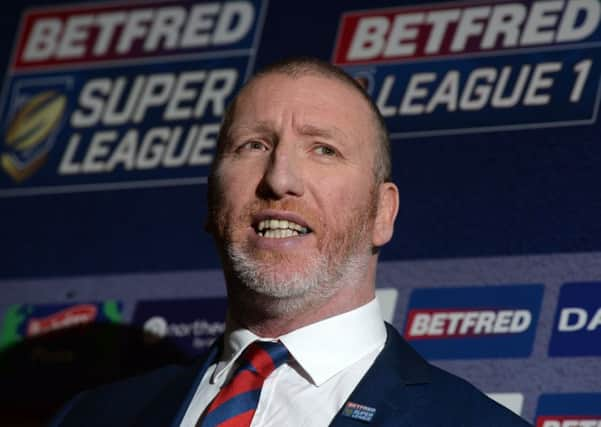Peter Smith: '˜Rugby league is and always has been riven by in-fighting'


Finally, less than a month from the end of the season, we know how Betfred Super League, the Championship and League One will operate next year.
That is, unless the ‘powers that be’ – whoever they actually are – decide to have yet another rethink.
Advertisement
Hide AdAdvertisement
Hide AdOutsiders may well find it hard to take seriously a sport which moves the goalposts on promotion and relegation- as the lower divisions have done – with only three games remaining in the season.


That was, maybe fortunately, overshadowed by the vote to scrap the Super-8s after this year and replace them with automatic promotion and relegation from 2019 onwards, plus loop fixtures and top-five play-offs in Super League.
It came after months of wrangling, with statements and counter-statements – and even a statement from one club calling for an end to statements. All that attracted more attention than most rugby league games do, but anyone expecting the game to pull together now for the greater good – or that there won’t be a similar debate in a few years’ time – is kidding themselves.
Rugby league is and always has been riven by in-fighting. It’s part of its nature, this is – after all a sport – which came into being because of a split. Rugby league has been searching for the perfect format ever since 1895: one division, two divisions, first past the post, top-four, five, six and eight play-offs, club-call, the Super-8s and Qualifiers. All tried, some more than once – all rejected.
Advertisement
Hide AdAdvertisement
Hide AdOne day it may dawn on the administrators there is no perfect system, that all formats have dead rubbers and matches with nothing particular riding on them.
At the end of every year, in any competition, there are inevitably teams with nothing to play for. That’s sport and anyway, the ‘new’ format does nothing to address that.
What rugby league really needs is stability. So now the vote has been taken, the aim should be to stick with it and make it work.
Fans – not to mention players, coaches and some administrators – are sick and tired of constant tinkering, particularly as none of the various changes over the years has made much of a positive difference to the game’s health or finances. There’s always something better just around the corner. It is a fair bet play-offs between Super League’s lesser lights and top teams in the Championship – effectively the Qualifiers – will come back on to the agenda at some stage.
Advertisement
Hide AdAdvertisement
Hide AdThe brave new vision agreed last week is a combination of previously discarded formats. Back in 2001 Super League was a 12-team competition, with six repeat fixtures, the bottom club relegated and top-five play-offs.
That system was scrapped the following year when the play-offs was expanded to the top-six.
If it didn’t work then, what makes anyone think it’ll revive the game now?
The top-five is actually a good format and maybe one-up, one-down is fairer than the team finishing ninth possibly being relegated.
Advertisement
Hide AdAdvertisement
Hide AdBut renaming repeat fixtures ‘loop’ games doesn’t make them any more attractive. And when relegation is on the agenda, some teams will be at an undeserved disadvantage.
Is playing some teams three – or four – times in one season really the way forward?
No it’s not. What the sport should be focusing on is fewer games, but making them more meaningful and therefore attractive to the paying fan.
Loop fixtures are needed because clubs could not survive financially with only 11 home games, therefore marketing is the key, attracting bigger crowds to the regular-season games to ensure it’s not necessary to play some teams more than twice.
Advertisement
Hide AdAdvertisement
Hide AdThe format, however, is far from the biggest issue in rugby league. On Monday, London Broncos’ home fixture with Salford Red Devils was brought forward, by the RFL, 24 hours to Saturday afternoon.
That’s five days notice to change a trip which, for Salford’s supporters, takes some planning. Whatever the format, while that sort of thing goes on the game will continue to lose fans and credibility.